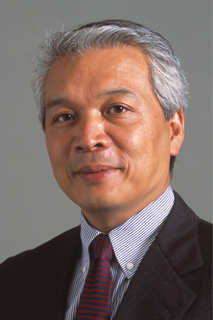9:30
Introduction
10:00 Paper presentations: Urban Living (1.1, 1.2)
10:30 Coffee break 1
11:00 Paper presentations: Smartphone (2.1, 2.2, 2.3,
2.4)
12:30 Lunch break
13:45 Paper presentations: Transportation (3.1, 3.2, 3.3,
3.4, 3.5)
15:30 Coffee break 2
16:00 Keynote -- "Creating Smart City
Services with
Social Open Big Data: Towards Sustainable Smart Services" by Prof.
Hideyuki Tokuda, Keio Univeristy (Japan)
17:00 Best Paper Award + Closing remarks
(Paper presentations separated
by topic)
1. Urban Living:::
1.1
Mobile Walking Game and
Group-Walking Program to Enhance Going Out for Older Adults
(Masami Takahashi, Hitoshi Kawasaki, Atsuhiko Maeda, Motonori Nakamura)
NTT Network Innovation Laboratories
(Japan)
[
pdf]
1.2
Expand Your Comfort Zone! Smart
Urban Objects to Promote Safety in Public Spaces for Older Adults
(Anna Kötteritzsch, Michael Koch, Susanne Wallrafen)
Bundeswehr University Munich (Germany);
Sozial Holding der Stadt Mönchengladbach GmbH (Germany) [
pdf]
2. Smartphone:::
2.1
Visualizing Mobile Phone Usage
for Exploratory Analysis: A case study of Portugal (Nuttapong
Kaewnoi, Narida Suntiparadonkul, Santi Phithakkitnukoon, Zbigniew
Smoreda)
Chiang Mai University
(Thailand); Orange Labs (France) [
pdf]
2.2
Monitoring Crowd Condition in
Public Spaces by Tracking Mobile Consumer Devices with Active WiFi
Interfaces
(Jens Weppner, Benjamin Bischke, Paul Lukowicz)
University of Kaiserslautern
(Germany)
[
pdf]
2.3
Real-time people movement
estimation in large disasters from several kinds of mobile phone data
(Yoshihide Sekimoto, Akihito Sudo, Takehiro Kashiyama, Toshikazu Seto,
Hideki Hayashi, Akinori Asahara, Hiroki Ishizuka, Satoshi Nishiyama)
The University of Tokyo (Japan); Hitachi
Ltd. (Japan); KDDI Corporation (Japan) [
pdf]
2.4
Tweets of the Nation: Tool for
visualizing and analyzing global tweets
(Thatchaphon Klomklao, Panat Ratanarungrong, Santi Phithakkitnukoon)
Chiang Mai University (Thailand) [
pdf]
3. Transportation:::
3.1
Visualization Tool for Taxi Usage
Analysis: A case study of Lisbon, Portugal
(Postsavee Prommaharaj, Santi Phithakkitnukoon, Marco Veloso, Carlos
Bento)
Chiang Mai University
(Thailand);
University Coimbra (Portugal) [
pdf]
3.2
An empirical study on the
regularity of route mobility (Farbod Faghihi and Petteri
Nurmi)
University of Helsinki
(Finland) [
pdf]
3.3
How taxi driver behavior impact
to their profit? Discerning the real driving from the large scale GPS
traces (Thananut Phiboonbanakit and Teerayut Horanont)
Sirindhorn International Institute of
Technology, Thammasat University (Thailand) [
pdf]
3.4
Representation Learning for
Geospatial Areas using Large-scale Mobility Data from Smart Card
(Masanao Ochi, Kimitaka Asatani, Yuko Nakashio, Matthew Ruttley, Yuta
Yamashita, Junichiro Mori, Ichiro Sakata)
The University of Tokyo (Japan) [
pdf]
3.5
BikeNow: A Pervasive Application
for Crowdsourcing Bicycle Traffic Data (Sven Fröhlich, Thomas
Springer, Stephan Dinter, Sebastian Pape, A. Schill, Jürgen Krimmling)
Technical University of Dresden (Germany)
[
pdf]
Keynote Speaker
-

-
Hideyuki Tokuda is a Professor of the Graduate
School of Media and Governance and Professor at the Faculty of
Environment and Information Studies, Keio University, Japan. He
obtained his B.S. (1975), M.S. (1977) from Keio University and Ph.D.
(Computer Science) (1983) from University of Waterloo, Canada,
respectively.
- Creating Smart City Services with Social Open Big Data
-
In
this talk, we discuss smart city services we have developed in ClouT,
G-Space and SODA project using social open big data. These services are
aiming at empowering citizens, improving QoL and resiliency of the city.
We summarize with the changes in creating sustainable smart city
services and platforms.


 PURBA 2011
PURBA 2011  PURBA 2012
PURBA 2012  PURBA 2013
PURBA 2013 PURBA 2015
PURBA 2015